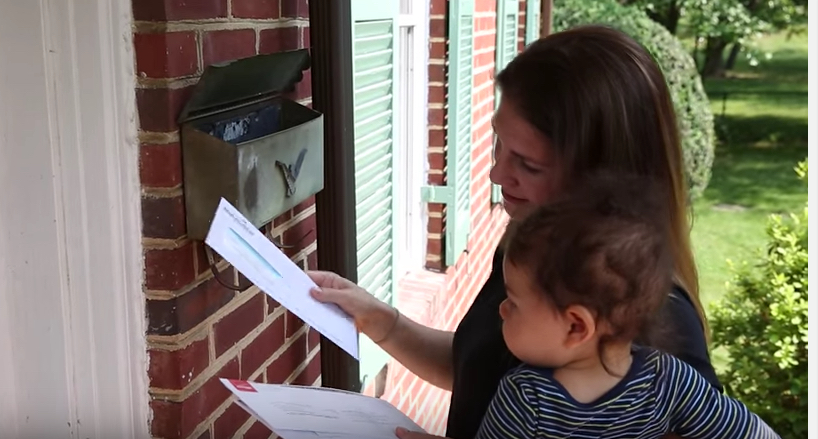Brain Bag teaching points can help 'language nourishment'
- January 27, 2017
- / Shannon Nickinson
- / early-learning

Introducing children to the concept of counting early on is an important step in building their mathematical thinking skills. Credit: Too Small to Fail.
What if we treated the "achievement gap" like a public health issue rather than thinking of it only as an education gap?
The achievement gap is the gap in language skills that research shows exists between children from lower socioeconomic status families and children from more well-off families. That gap has been linked to the kind of language environment a child is exposed to in the first three years of life.
It's the so-called "30 million word gap" — first identified by Betty Hart and Todd Risley from the University of Kansas — that informs the work of Dr. Dana Suskind's team at the University of Chicago.
The Hart and Risley study shows that not only the number of words, but also the quality of words and the tone in which they are spoken matter greatly when it comes to building strong connections in a child's brain that will influence their language skills come the first day of school.
The Studer Community Institute is fortunate to be partners with the University of Chicago for the chance to bring some of their research-based interventions to Pensacola to help improve the quality of life for our families.
The work that we have under way on the IMPACT Brain Bag project will dovetail nicely with what the U of C team will bring to our community. By the end of next week, I will have met with teams from the three major hospitals in Pensacola to plan the logistics for rolling out the Brain Bags to new moms.
That will include revising the teaching points that will go along with the bags to help make sure every family who receives a bag gets the message about the importance of language in early brain development, especially in the first 1,000 days of a child's life.
We think that starting the conversation about the power that parents have to build a baby's brain through talk is an important part of building an Early Learning City — a place that enlists the whole community in building a culture of lifelong learning, including in its public spaces.
It’s an important effort because only 66 percent of Escambia County’s kindergartners are ready for kindergarten on the first day of school, according to the most recently available data from the Florida Office of Early Learning.
An Early Learning City is a community that supports early brain development, parent engagement and school readiness for all of our children, especially those ages birth to 5.
And we think the healthcare community is a great partner in this effort.
So do other communities, by the way.
Dorothy Bush Koch, daughter of former President George H.W. Bush and honorary co-chairman of the Barbara Bush Foundation for Family Literacy, wrote in a recent column about the family foundation's partnership with Talk With Me Baby in Georgia.The folks in Georgia call it teaching parents about "language nutrition" — in the same way that food nourishes the growing body, words nourish the growing brain.
It's been six years since I left the mother-baby unit with my youngest child, chock full of warnings about how our baby should safely sleep, what she should eat, what physical milestones to keep an eye on as she grew.
I had advice for breastfeeding, advice about the signs of post-partum depression, advice to take one of her hospital blankets home a day ahead of time so the family dog could get used to her smell.
Now we hope that that list can include advice about how to make every baby's first 1,000 days happy, healthy and filled with positive, loving words that will literally lay the wiring of the developing brain.
 CivicCon launches with a look at good growth in cities
CivicCon launches with a look at good growth in cities
 Building stronger brains one baby, one parent at a time
Building stronger brains one baby, one parent at a time
 SCI debuts commercial on Early Learning City
SCI debuts commercial on Early Learning City
 Entrecon: World class speakers and an opportunity to sharpen skills
Entrecon: World class speakers and an opportunity to sharpen skills
 PYP Quality of Life survey 2017
PYP Quality of Life survey 2017
 EntreCon Pensacola 2016: A look back
EntreCon Pensacola 2016: A look back
 Leadership tip: getting better employee takeaways
Leadership tip: getting better employee takeaways
 Leadership tip: be interested instead of interesting
Leadership tip: be interested instead of interesting
 Leadership tip: delivering difficult messages
Leadership tip: delivering difficult messages
 Brain Bags boost Arc, Early Childhood Court programs
Brain Bags boost Arc, Early Childhood Court programs